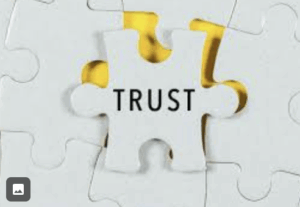Every relationship—no matter how loving—experiences conflict. Arguments, misunderstandings, and emotional distance are a natural part of being human. What truly defines a strong relationship isn’t whether you fight, but how you repair and reconnect afterward.
After a disagreement, it can be difficult to bridge the gap. Emotions may still feel raw, and you might not know how to reach out without reigniting the tension. The good news? With intentional effort and empathy, you can reconnect and even strengthen your relationship after conflict.
Why Repairing After Conflict Matters
When conflict goes unresolved, resentment and disconnection can build. Repairing the bond after an argument helps both partners feel heard, valued, and emotionally safe again.
According to relationship research by Dr. John Gottman, successful couples aren’t those who avoid fights—they’re those who know how to make repairs. Reconnection is what restores trust, safety, and love after tension.
If you and your partner find yourselves stuck in cycles of conflict, Couples Therapy can help you learn communication tools that bring you closer rather than push you apart.
Step 1: Take Space—But With Intention
After an argument, it’s normal to need space to cool down. Taking a short break allows both partners to process their emotions without saying something hurtful in the heat of the moment.
However, it’s important to communicate your need for space kindly:
“I need a little time to calm down, but I do want to talk about this later.”
This lets your partner know you’re not walking away—you’re creating room to reconnect more effectively.
If you often feel anxious during periods of distance or find that breaks don’t help, Individual Therapy can help you manage that discomfort and find security within yourself.
Step 2: Reflect Before You Reconnect
Before approaching your partner, ask yourself:
- What was I really feeling beneath the anger?
- What might my partner have been feeling?
- What do I need right now to feel close again?
Reflection helps you approach the conversation with empathy instead of defensiveness. Many times, beneath conflict lies deeper emotional needs—like wanting to feel respected, understood, or cared for.
You can learn more about the emotions behind conflict in our post on The Psychology of Attachment: Why It Matters in Relationships.
Step 3: Offer a Genuine Repair
A repair attempt is any gesture that says, “I still care about you.” This might look like a sincere apology, a gentle touch, or a statement such as:
“I didn’t mean to hurt you. Can we try again?”
Effective repair focuses on empathy, not winning. Even a simple acknowledgment like “I see how that upset you” can open the door to reconnection.
Step 4: Revisit the Issue Calmly
Once both of you feel ready, revisit the conflict with openness. Stay curious, not defensive. Use “I” statements instead of “you” accusations—for example:
“I felt hurt when…” instead of “You always…”
The goal isn’t to assign blame, but to understand each other’s experiences. This creates space for both people to feel validated and respected.
Our Individual Therapy sessions can also help you explore your own communication patterns and emotional triggers so you can show up more calmly in conflict.
Step 5: Reconnect Emotionally and Physically
After resolution, take time to reconnect emotionally and physically. That might mean sharing affection, laughing together, or simply spending quiet time side by side. Small moments of closeness rebuild trust and remind both partners that love is still present.
Step 6: Learn and Grow From Conflict
Every disagreement holds valuable information about your relationship dynamics. Ask yourselves:
- What triggered this argument?
- What patterns do we notice?
- What can we do differently next time?
Conflict, when handled well, can actually deepen your bond. It gives you the opportunity to understand each other more fully and grow closer through mutual understanding.
Final Thoughts
Conflict doesn’t mean your relationship is broken—it means you’re human. What matters most is how you choose to reconnect afterward. With patience, vulnerability, and compassion, repair can become one of the most intimate and healing parts of your relationship.
If you and your partner are struggling to reconnect after conflict, Kingston & Co Counseling is here to help. Our Couples Therapists offers tools and support to rebuild communication, trust, and closeness.
Explore all of our services to see how we can support your journey toward a stronger, healthier relationship.







